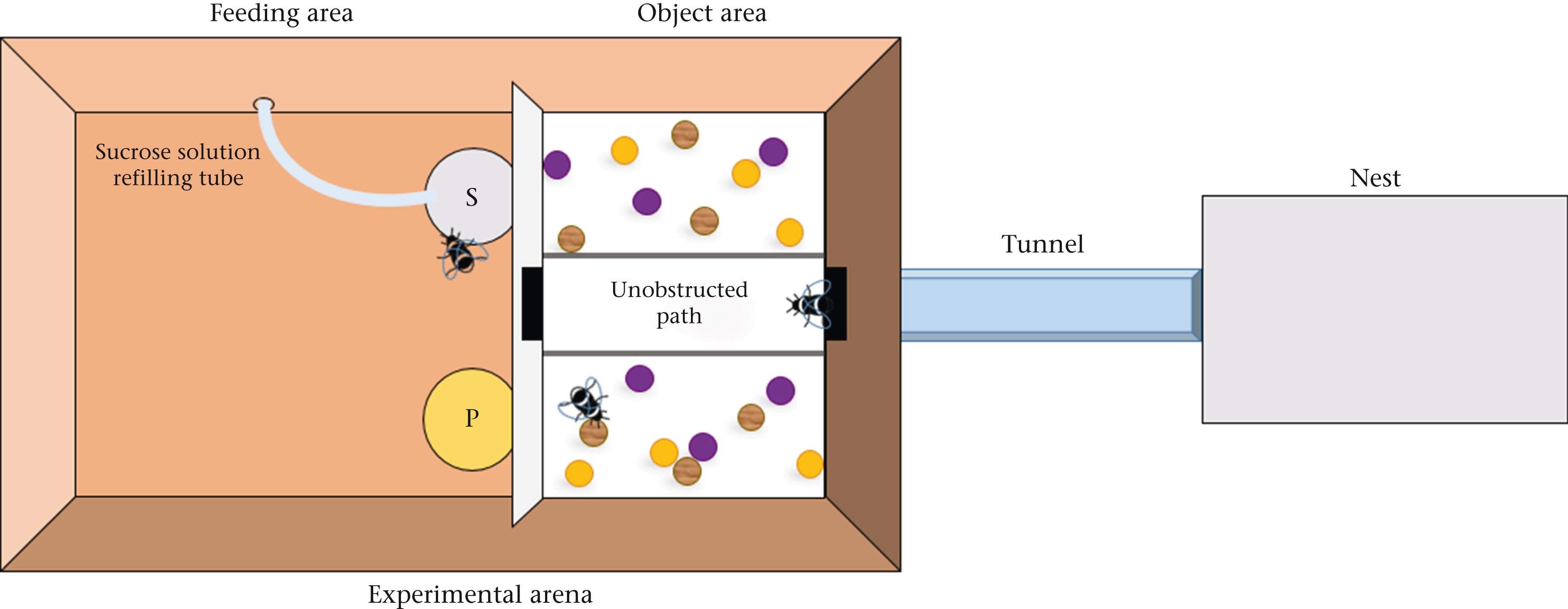It seems that the humble bumblebee has joined the ranks of animals that play just for fun, just like dogs and dolphins. Beekind has already been up to quite a lot in 2022, winning awards, getting recognized as fish, learning to distinguish odd and even numbers, and even lining up numbers in the right order. Now, they’re taking a well-earned break by having some playtime.
In a new study, scientists introduced bumblebees (Bombus terrestris) to three different ball-rolling experiments to see if their behavior meets the criteria for animal play. Not only did the bees go out of their way to roll the balls, with no apparent incentive, but younger bees rolled more balls than older bees, similar to human children and other young animals.
“It is certainly mind-blowing, at times amusing, to watch bumble bees show something like play. They approach and manipulate these ‘toys’ again and again. It goes to show, once more, that despite their little size and tiny brains, they are more than small robotic beings,” first author Samadi Galpayage, PhD student at Queen Mary University of London said.
“They may actually experience some kind of positive emotional states, even if rudimentary, like other larger fluffy, or not so fluffy, animals do.”
There are five key factors at work to determine if a behavior is actually “playing” or has some survival benefit. The five criteria are:
1. Does not contribute to an immediate adaptive benefit or survival strategy
2. The play is voluntary, spontaneous and rewarding.
3. Play behavior should be different from behaviors used in looking for a mate or finding food
4. Play is repeated but not stereotyped
5. Play behavior was initiated under stress-free conditions
This study builds on previous work where the bees were trained to roll balls in exchange for a reward. In one part of the new study, researchers trained 42 bees to find free-moving balls in one of two colored chambers. When presented with the chambers again the bees showed a preference for the color of the chamber where they had played with the balls.
In another experiment, when entering the chamber 45 different bees had the option to walk between the balls to get to the feeding areas. Immobile balls were placed on the left and mobile balls on the right side. They found that the bees chose to roll the balls when there was no obvious reason to do so, indicating that the play behavior was spontaneous.

Experimental set-up. Image Credit: Dona, H.S.G., et al, Animal Behavior, 2022
The team concluded that bees rolled the balls repeatedly – up to 117 times for one individual – over the course of the experiment, but gained no additional benefit other than finding the experience rewarding just from playing with the wooden balls. They suggest that further work should look at how play behavior might offer a benefit to early brain development.
“This sort of finding has implications to our understanding of sentience and welfare of insects and will, hopefully, encourage us to respect and protect life on Earth ever more,” Galpayage said.
The paper is published in Animal Behavior.
Source Link: Adorably, Bumblebees Enjoy Playing Ball For Fun Just Like Dogs And Dolphins